Climate change is a pressing global issue that affects everyone. Books on this topic can help us understand the causes, impacts, and potential solutions. They offer insights from scientists, policymakers, and activists who are working to address this challenge.
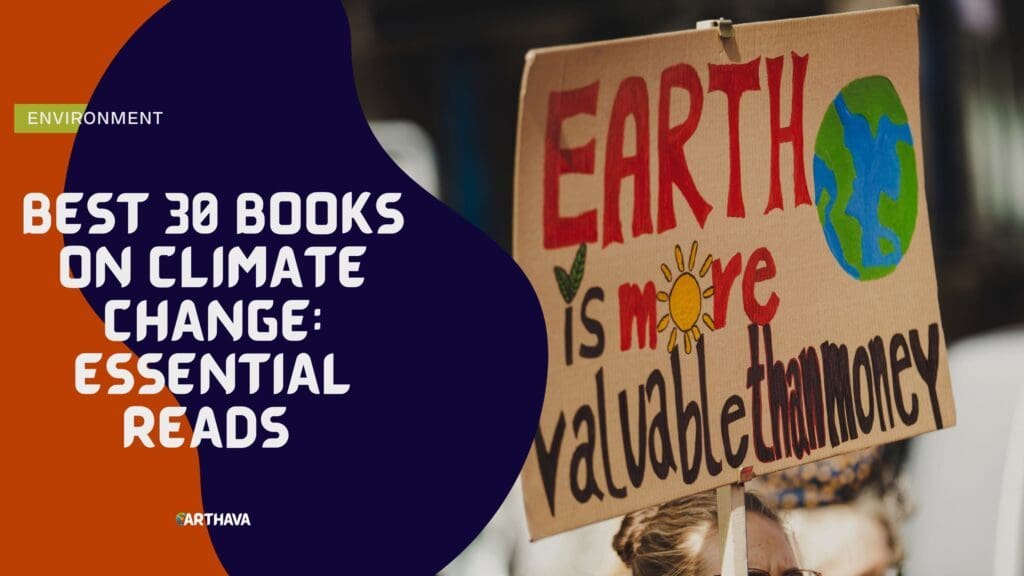
Reading about climate change can be eye-opening and motivating. It can inspire us to take action in our own lives and communities. Some books focus on the science behind climate change, while others explore its social and economic effects. There are also practical guides that suggest ways to reduce our carbon footprint.
When choosing a climate change book, it’s good to consider the author’s expertise and the book’s publication date. Climate science is always evolving, so newer books often have the most up-to-date information. It’s also helpful to look for books that match your interests and reading level. We looked at many climate change books to find ones that are informative, engaging, and accessible to a wide range of readers.
Top Picks for the Best Climate Change Books
We’ve researched and selected the top books that explain climate change clearly. Our list includes options for readers wanting to learn about the science, impacts, and potential solutions to this global issue.
1. Unsettled: A Climate Science Deep Dive
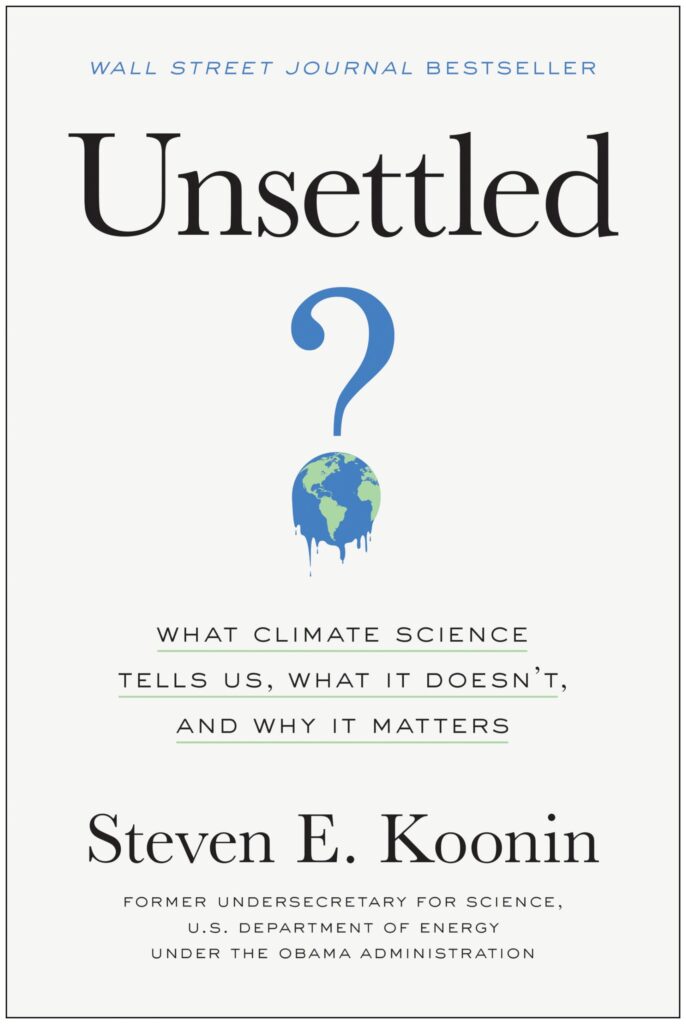
We recommend this book for readers seeking a balanced, science-based perspective on climate change debates.
Pros:
- Clear explanations of complex climate science
- Authored by a respected physicist and former government official
- Challenges common assumptions with data-driven analysis
Cons:
- Some technical graphs may be challenging for non-experts
- Doesn’t align with mainstream climate change narratives
- It may be seen as controversial by some readers
“Unsettled” offers a fresh take on climate science. We found the author’s approach refreshingly objective. Steven Koonin, a physicist who served in the Obama administration, brings a wealth of expertise to the table.
The book dives into what climate data tells us. We appreciated how Koonin separates facts from uncertainties. He presents information from IPCC reports that often go unnoticed by the general public.
Koonin’s writing style makes complex topics easier to grasp. We liked how he uses real-world examples to explain scientific concepts. The book encouraged us to think critically about climate change claims we often hear in the media.
While reading, we noticed that some ideas might ruffle feathers. Koonin questions certain widely accepted climate change beliefs. But he backs up his points with solid data and reasoning.
The graphs in the book can be a bit technical. We had to spend extra time on some sections to fully understand them. But for readers who enjoy digging into data, these visuals add value.
We think this book is great for anyone wanting to expand their climate change knowledge. It gives a different perspective than what we usually see. Whether you agree with all of Koonin’s points or not, “Unsettled” will make you think.
2. The Heat Will Kill You First
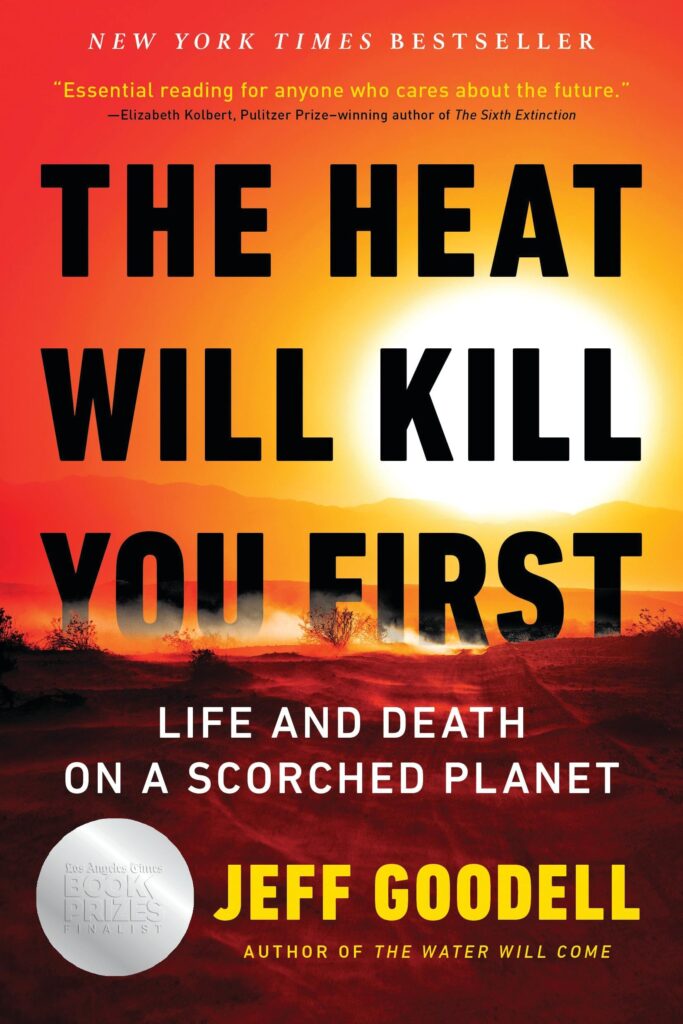
We highly recommend this eye-opening book for anyone seeking to understand the real-world impacts of climate change.
Pros:
- The engaging and accessible writing style
- Comprehensive coverage of heat-related issues
- Backed by solid research and journalism
Cons:
- May be unsettling for some readers
- Focuses mainly on negative impacts
- Limited discussion of solutions
Jeff Goodell’s latest work brings the realities of global warming into sharp focus. We found the casual, almost fiction-like writing style made complex climate concepts easy to grasp. The author’s firsthand experiences and vivid descriptions paint a clear picture of what life on a hotter planet might look like.
Each chapter tackles a different aspect of rising temperatures. We were struck by how heat affects everything from human health to infrastructure. The book doesn’t shy away from scary scenarios, but it’s not all doom and gloom. Goodell’s passion for the subject shines through, making for a compelling read.
While the content can be heavy at times, we think it’s an important wake-up call. The book excels at showing how climate change isn’t just a future problem – it’s happening now. We came away with a much better understanding of the challenges ahead and why action is needed. If you want to know what’s at stake with global warming, this book is a great place to start.
3. Under a White Sky
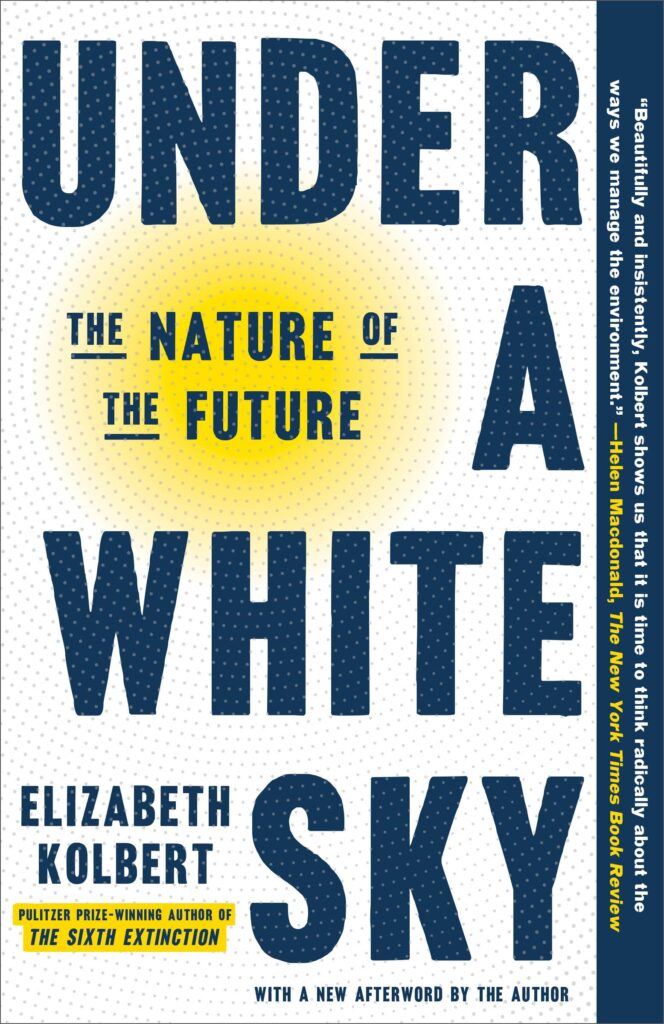
We highly recommend this eye-opening book for anyone interested in understanding climate change and humanity’s attempts to address it.
Pros:
- Clear, engaging writing style
- Thought-provoking examples
- Well-researched content
Cons:
- It can be depressing at times
- Complex scientific concepts
- No easy solutions offered
Elizabeth Kolbert’s “Under a White Sky” takes us on a journey through the ways humans are trying to fix the problems we’ve caused in nature. We found her writing style easy to follow, even when dealing with tricky science stuff. The book doesn’t pull any punches about how serious climate change is.
We really liked how Kolbert uses real-world examples to show what’s happening. She talks about things like gene-editing fish and putting tiny diamonds in the sky to cool the Earth. These ideas sound crazy, but they’re actually being worked on right now.
The book isn’t all doom and gloom, though. We felt a sense of hope seeing how smart people are working hard to solve these big problems. But it also made us think about whether we should be messing with nature even more. It’s a quick read at 272 pages, but it’ll stick with you for a long time.
4. The Climate Book
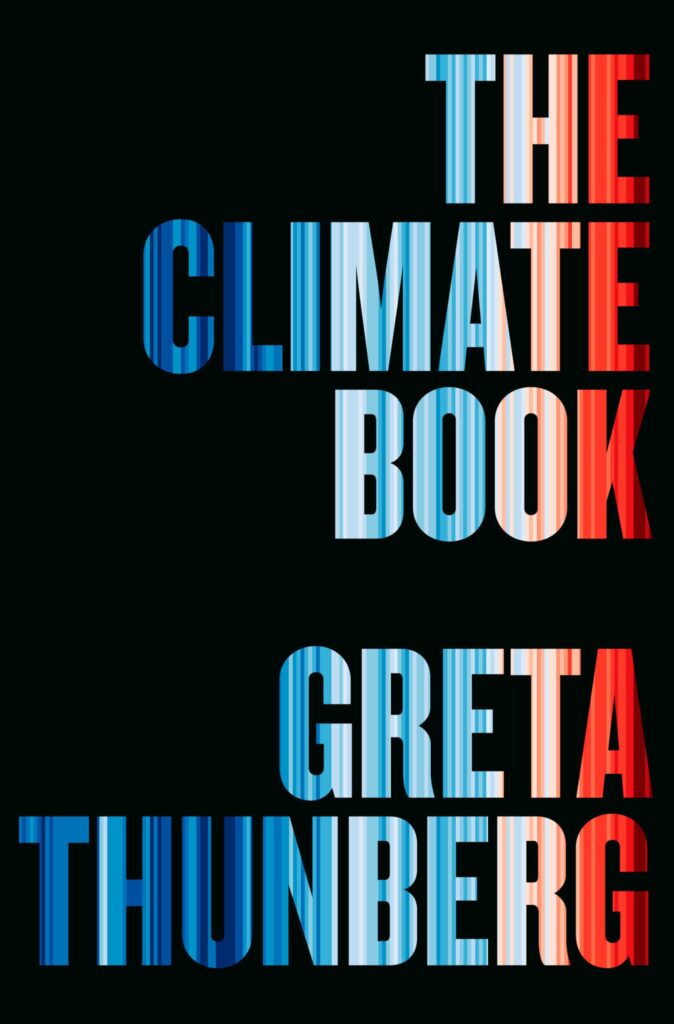
We believe this comprehensive guide is a must-read for anyone seeking to understand climate change and take action.
Pros:
- Diverse expert contributions
- Accessible writing style
- Covers both problems and solutions
Cons:
- Dense content can be overwhelming
- It may feel repetitive in places
- Some readers may find it disheartening
We found “The Climate Book” to be an eye-opening read. Greta Thunberg has compiled a wealth of information from leading experts, making complex climate science easy to grasp. The book doesn’t shy away from hard truths, which can be tough to process at times.
As we went through the chapters, we appreciated the mix of scientific facts and personal insights. The book’s structure allows readers to dive into specific topics or read cover-to-cover. We noticed that some sections overlap, but this helps reinforce key points.
The solutions-focused parts gave us hope and practical ideas for action. While the sheer amount of information can feel daunting, we think it’s a valuable resource to return to over time. The book’s layout, with short essays and clear headings, makes it easy to digest in small chunks.
5. Gates’ Climate Guide
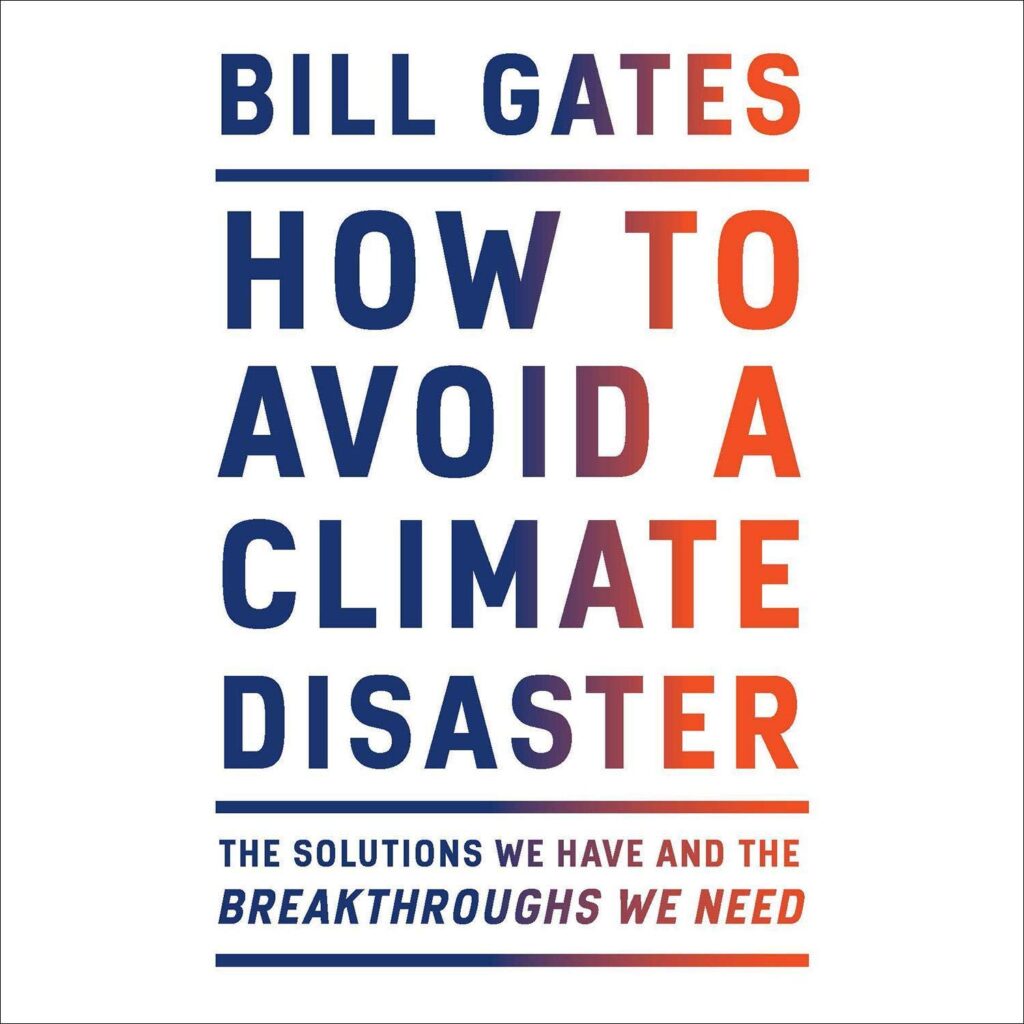
We think this book is a must-read for anyone wanting to understand climate change solutions and the challenges ahead.
Pros:
- Clear explanations of complex topics
- A practical approach to solving climate issues
- Narrated by Bill Gates and Wil Wheaton
Cons:
- Some may find the technical details overwhelming
- Focuses more on technological fixes than policy changes
- May not go deep enough for climate experts
Bill Gates tackles the climate crisis head-on in this eye-opening audiobook. We found his explanations easy to follow, even when discussing complex topics. The mix of Gates’ and Wil Wheaton’s narration keeps things engaging throughout the 7-hour listen.
Gates breaks down the climate challenge into manageable pieces. He looks at different sectors contributing to emissions and suggests practical solutions for each. We liked how he balances current tech with future innovations needed to reach zero emissions.
The book doesn’t shy away from the enormity of the task ahead. But Gates’ optimism shines through, making us feel hopeful about our ability to solve this crisis. While some readers might want more policy discussions, we think this tech-focused approach offers a fresh take on climate action.
6. False Alarm: Climate Realism
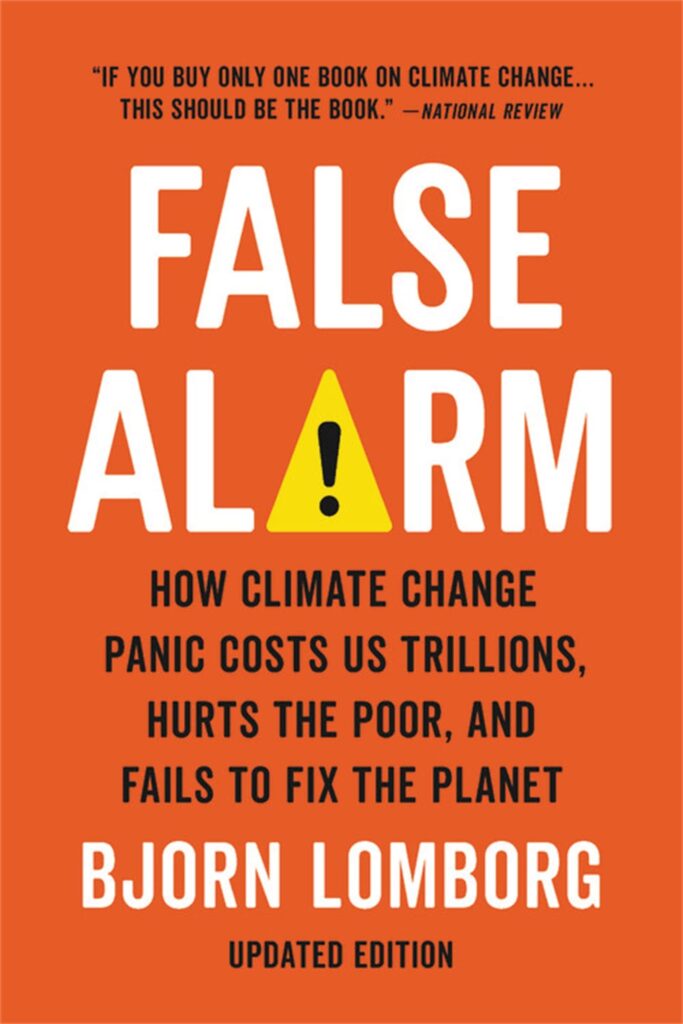
We recommend this book for readers seeking a balanced perspective on climate change policies and their economic impacts.
Pros:
- Data-driven analysis
- Challenges popular narratives
- Offers alternative solutions
Cons:
- May be controversial
- Complex economic concepts
- Potential bias concerns
Bjorn Lomborg’s “False Alarm” gives us a fresh look at climate change. We found the book packed with facts and figures that made us think twice about common beliefs. It’s not an easy read, but it’s worth the effort.
The author doesn’t deny climate change. Instead, he asks if our current approach is the best way to tackle it. We liked how he used real-world data to back up his points. It felt like we were getting a behind-the-scenes look at climate policy decisions.
Lomborg’s ideas might ruffle some feathers. He argues that many climate policies cost more than they’re worth. But he’s not all doom and gloom. His suggestions for dealing with climate change in smarter, more cost-effective ways surprised us. This book left us with a lot to think about.
7. The Great Displacement
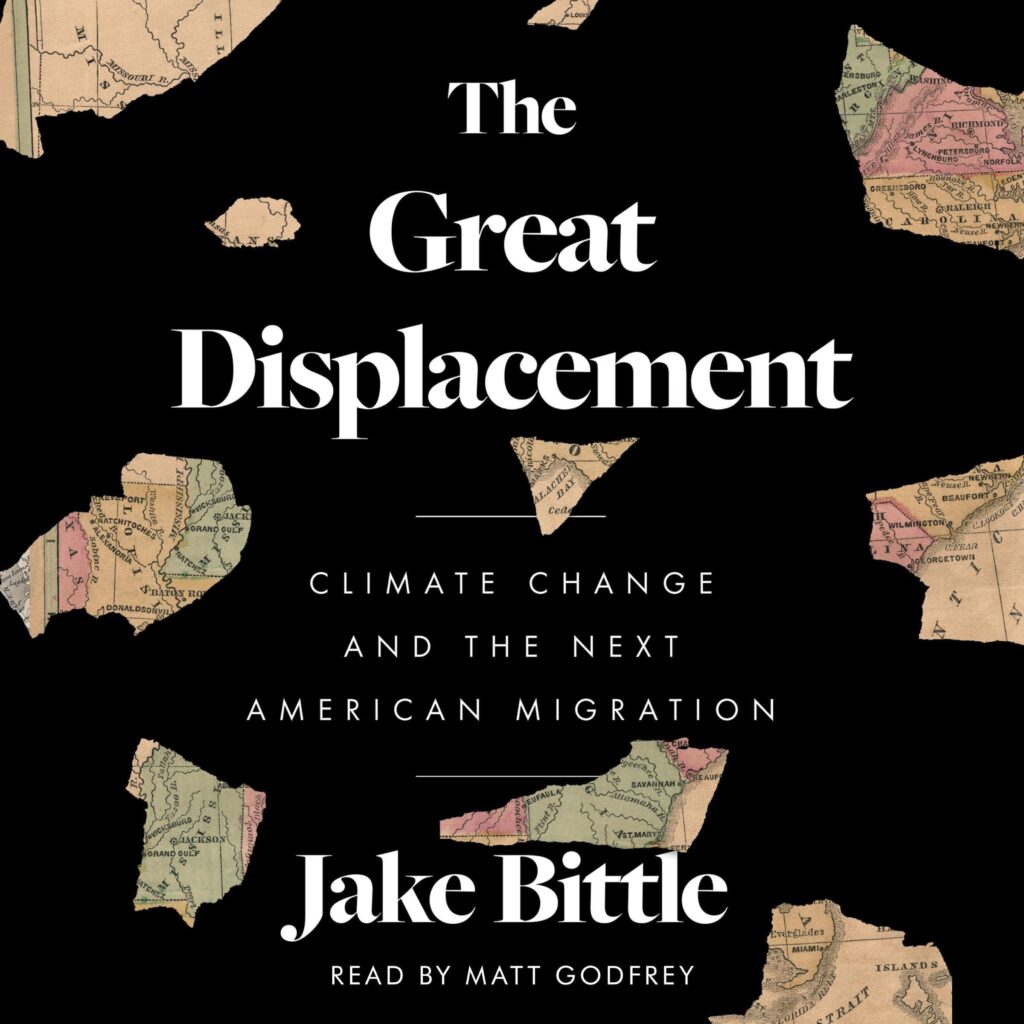
We believe this eye-opening book is a must-read for anyone wanting to understand the real human impacts of climate change in America.
Pros:
- Compelling personal stories
- Well-researched and informative
- Accessible writing style
Cons:
- It may be emotionally difficult to read
- Focuses mainly on U.S. impacts
- Some readers may want more policy solutions
Jake Bittle takes us on a journey across the United States to meet people already being displaced by climate change. We found his storytelling powerful and moving. The book puts human faces to the often abstract topic of climate impacts.
The author’s research is thorough and eye-opening. We learned about communities dealing with repeated flooding, devastating wildfires, and creeping sea level rise. Bittle explains complex topics like flood insurance and managed retreat programs in clear terms.
While the subject matter can be heavy, the writing keeps you engaged. We appreciate how Bittle balances personal stories with broader context about climate risks. This book changed how we think about climate change. It’s not a far-off threat – it’s reshaping lives and communities right now.
8. The Uninhabitable Earth
We strongly recommend this eye-opening book for anyone seeking a deeper grasp of climate change’s far-reaching impacts.
Pros:
- Gripping, well-researched content
- Clear, accessible writing style
- Covers a wide range of climate effects
Cons:
- It can be emotionally challenging
- Some may find it overly pessimistic
- Dense with information
The Uninhabitable Earth shook us to our core. David Wallace-Wells paints a vivid picture of our warming world that’s hard to look away from. His writing grabs you from the first page and doesn’t let go.
We found the book’s scope impressive. It covers everything from rising seas to failing crops. Wallace-Wells connects the dots between climate change and its effects on society, economy, and health. The information is dense but never dry.
This isn’t a light read. At times, we felt overwhelmed by the stark realities presented. But that’s part of why it’s so important. The book doesn’t sugarcoat things, yet it’s not all doom and gloom. It left us feeling more informed and motivated to act.
9. Attenborough’s Climate Wake-Up Call
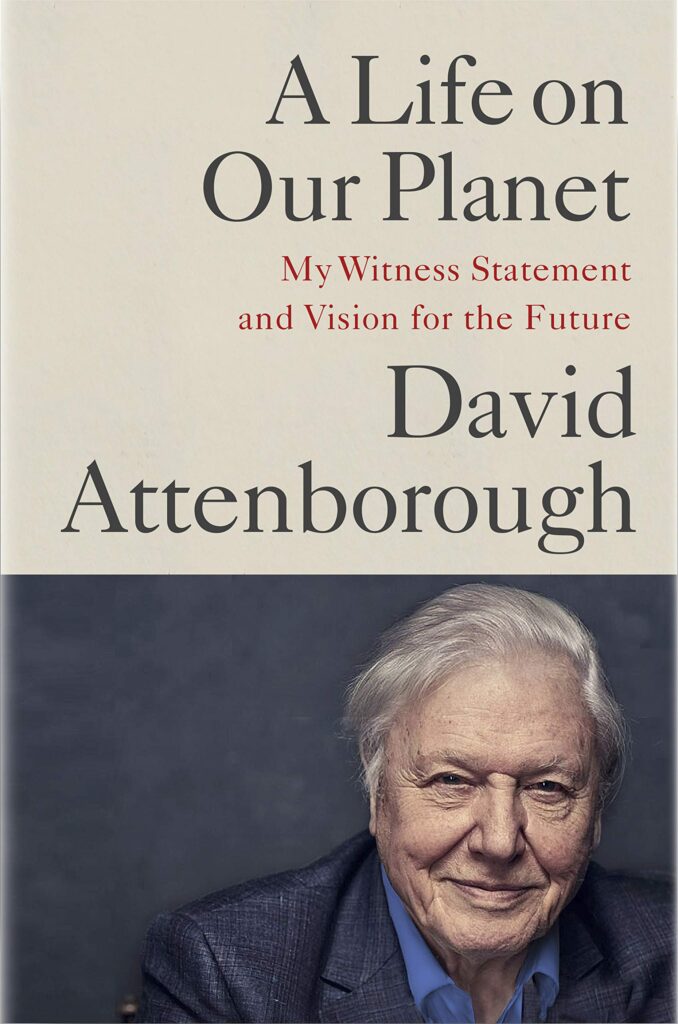
We think this book is a must-read for anyone wanting to understand climate change through the eyes of a beloved naturalist.
Pros:
- Easy to read and understand
- Offers hope and solutions
- Packed with Attenborough’s lifetime of observations
Cons:
- May be emotionally challenging for some
- Focuses mainly on Attenborough’s perspective
- Could use more scientific details for some readers
We found “A Life on Our Planet” to be a powerful and moving account of Earth’s changing climate. Sir David Attenborough shares his unique viewpoint as a witness to our planet’s transformation over nearly a century. His writing style makes complex topics easy to grasp.
The book is split into three parts. First, Attenborough takes us through his life experiences, showing how nature has changed. Next, he paints a stark picture of where we’re heading if we don’t act. We felt this section was eye-opening but might be tough for some to read.
What we liked most was the final part. Here, Attenborough lays out his vision for the future. It’s not all doom and gloom – he gives practical steps we can take to help our planet. We closed the book feeling more informed and oddly hopeful. While it’s not a deep scientific text, we think it’s a great starting point for anyone wanting to learn about climate change.
10. Drawdown: Climate Action Plan
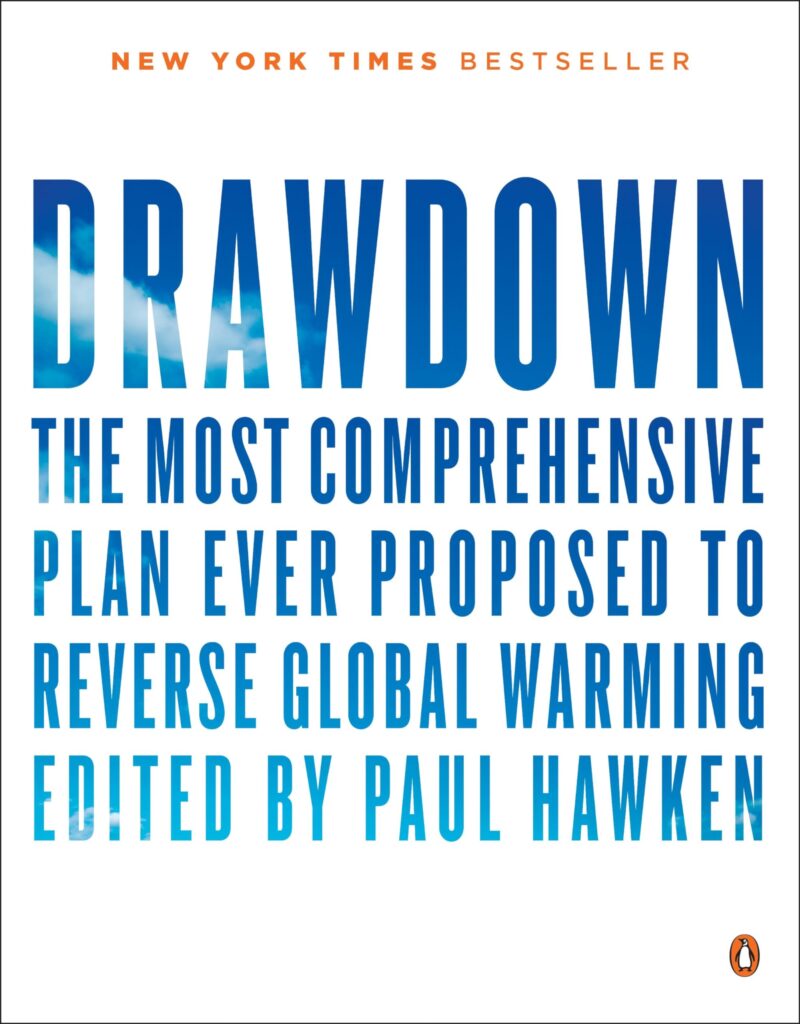
We think this book is a must-read for anyone seeking practical solutions to combat climate change.
Pros:
- Comprehensive coverage of 100 climate solutions
- Well-researched with data-driven approaches
- Beautifully designed with engaging visuals
Cons:
- Some information may be outdated
- Lacks in-depth analysis of individual topics
- May overwhelm readers with technical details
We found “Drawdown” to be an eye-opening read that left us feeling hopeful about tackling global warming. The book presents 100 concrete solutions to reverse climate change, backed by solid research and analysis. It’s not just another doom-and-gloom climate book – it offers real, actionable steps we can take.
The layout of the book is stunning. Full-color images and infographics make complex ideas easy to grasp. We appreciated how each solution is ranked by its potential impact, giving us a clear picture of what matters most. From renewable energy to educating girls, the range of solutions is impressive.
While the book covers a lot of ground, it doesn’t dive too deep into any one topic. This broad approach works well for getting an overview, but readers wanting in-depth information on specific areas might need to look elsewhere. Some data points may also be outdated since the book was published in 2017. Still, we think the core ideas and strategies remain relevant and valuable today.
11. Our Fragile Moment
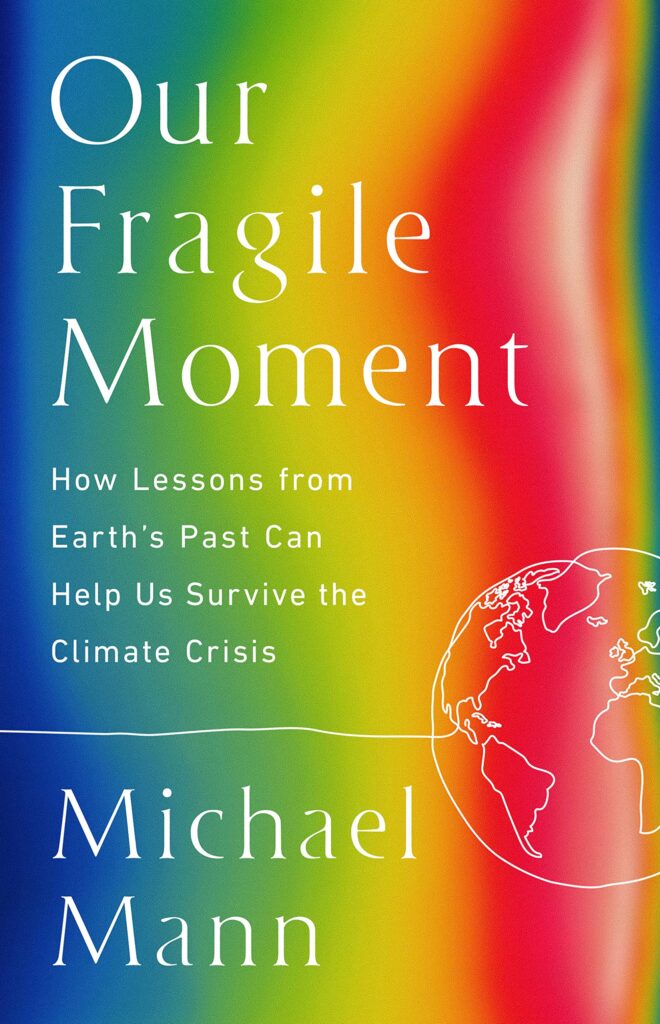
We recommend this book for anyone seeking a deep dive into Earth’s climate history and its relevance to our current crisis.
Pros:
- Accessible explanation of complex climate science
- Rich historical context and anecdotes
- Clear link between past climate events and the current crisis
Cons:
- May be too detailed for casual readers
- Focus on history might not appeal to all
- Some readers may find it overwhelming
Michael Mann’s “Our Fragile Moment” takes us on a fascinating journey through Earth’s climate history. The book starts billions of years ago and works its way to the present day. We found it packed with interesting facts and stories that help explain our planet’s changing climate.
Mann does a great job making tough science easy to grasp. He uses examples from pop culture and history to keep things lively. We liked how he tied past climate events to what’s happening now. It really drives home why we need to act on climate change.
The book is pretty long and detailed. Some parts might be a bit much for readers just wanting basic info. But for those ready to learn, it’s a goldmine. We think it’s a must-read for anyone who wants to truly get climate change. It left us feeling more informed and ready to tackle this big issue.
12. Climate Change Guide
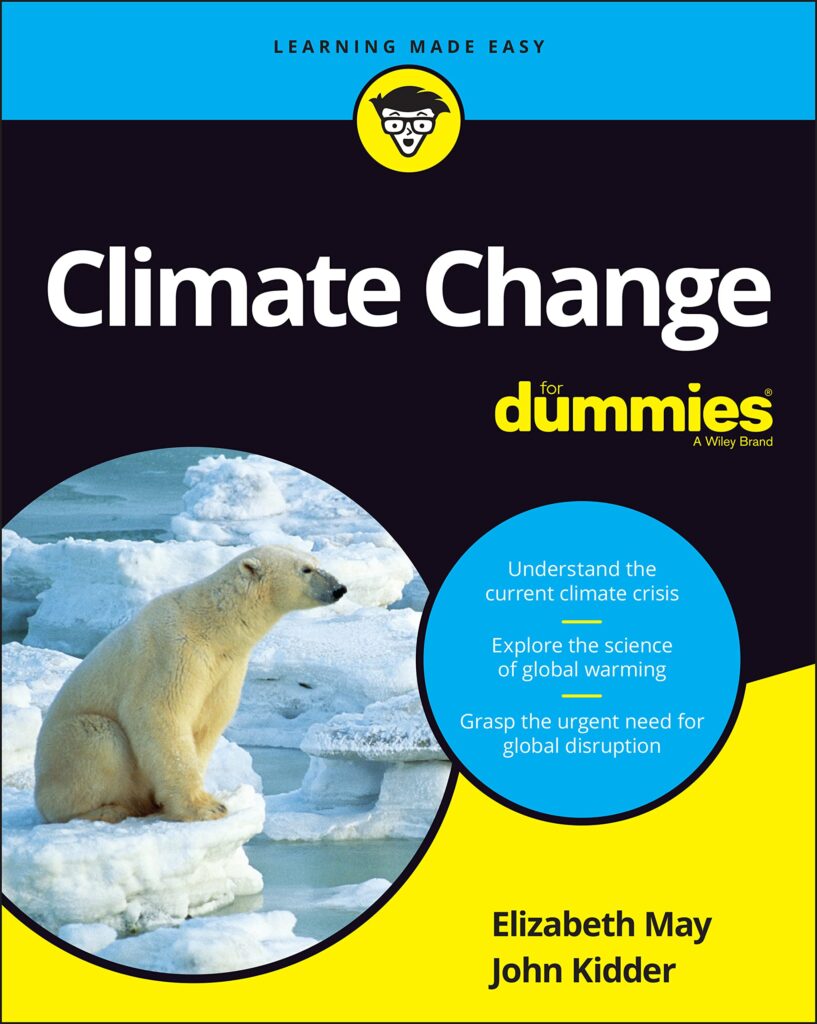
We found this book to be an excellent starting point for anyone looking to understand climate change basics.
Pros:
- Easy-to-understand explanations
- Up-to-date information
- Covers a wide range of topics
Cons:
- May be too basic for experts
- Some sections feel rushed
- Limited coverage of solutions
We picked up this book to brush up on our climate change knowledge. It’s part of the well-known “For Dummies” series, which aims to break down complex topics. This one does just that for climate change.
The book is split into easy-to-digest chunks. We liked how it starts with the basics and builds up. It covers the science behind climate change, its impacts, and what we can do about it. The writing style is clear and avoids jargon.
We found the graphs and charts helpful. They made it easier to grasp some of the trickier concepts. The book also includes some recent events and data, which we appreciate. It’s not just dry facts – it ties everything to real-world happenings.
While great for beginners, we think some readers might want more depth. A few parts felt a bit rushed. We also wished for more on climate solutions. But as an intro, it does its job well. If you’re new to climate change or want a refresher, we think this book is a solid choice.
13. The Story of More
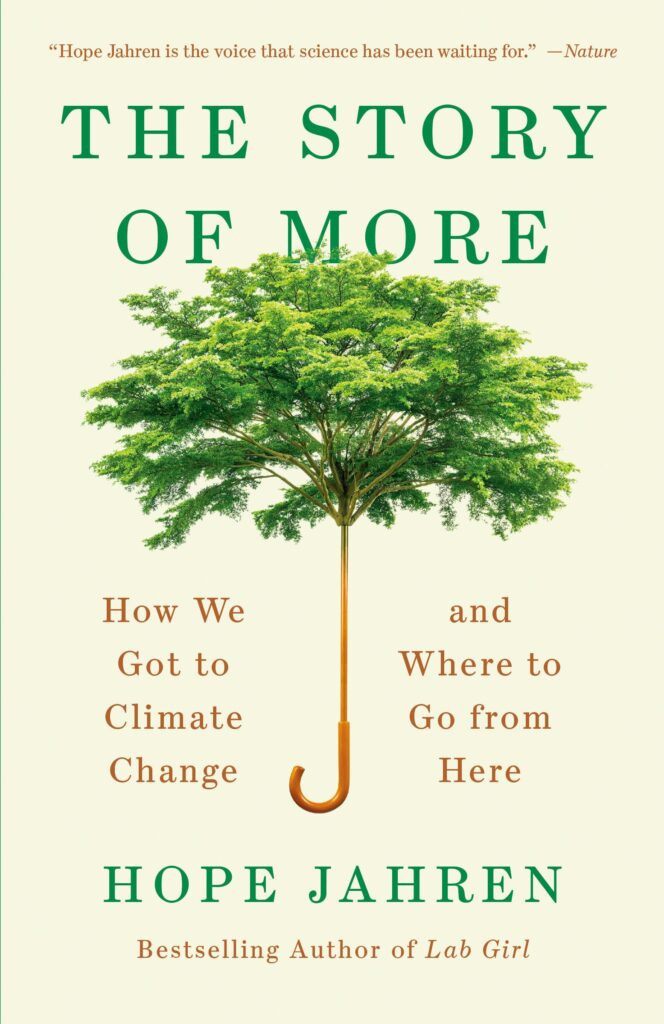
We highly recommend this engaging and accessible book for anyone looking to understand climate change and its causes.
Pros:
- Clear, easy-to-follow explanations
- Packed with interesting facts and data
- Offers hope and solutions
Cons:
- Some concepts may be challenging for younger readers
- Focuses mainly on Western countries
- Could use more visuals to illustrate key points
Hope Jahren’s “The Story of More” takes us on an eye-opening journey through the history of human consumption and its impact on our planet. We found the book’s straightforward approach refreshing. Jahren breaks down complex topics into bite-sized chunks that are easy to grasp.
The author’s background as a scientist shines through in her writing. She backs up her claims with solid data and research. We appreciated how she connects everyday actions to larger environmental issues. It made the topic feel more personal and relevant.
While the book paints a sobering picture of our current situation, it’s not all doom and gloom. Jahren offers practical steps we can take to reduce our impact. We came away feeling more informed and empowered to make changes in our own lives. This book is a great starting point for anyone wanting to learn more about climate change and how to address it.
14. Climate & Capitalism
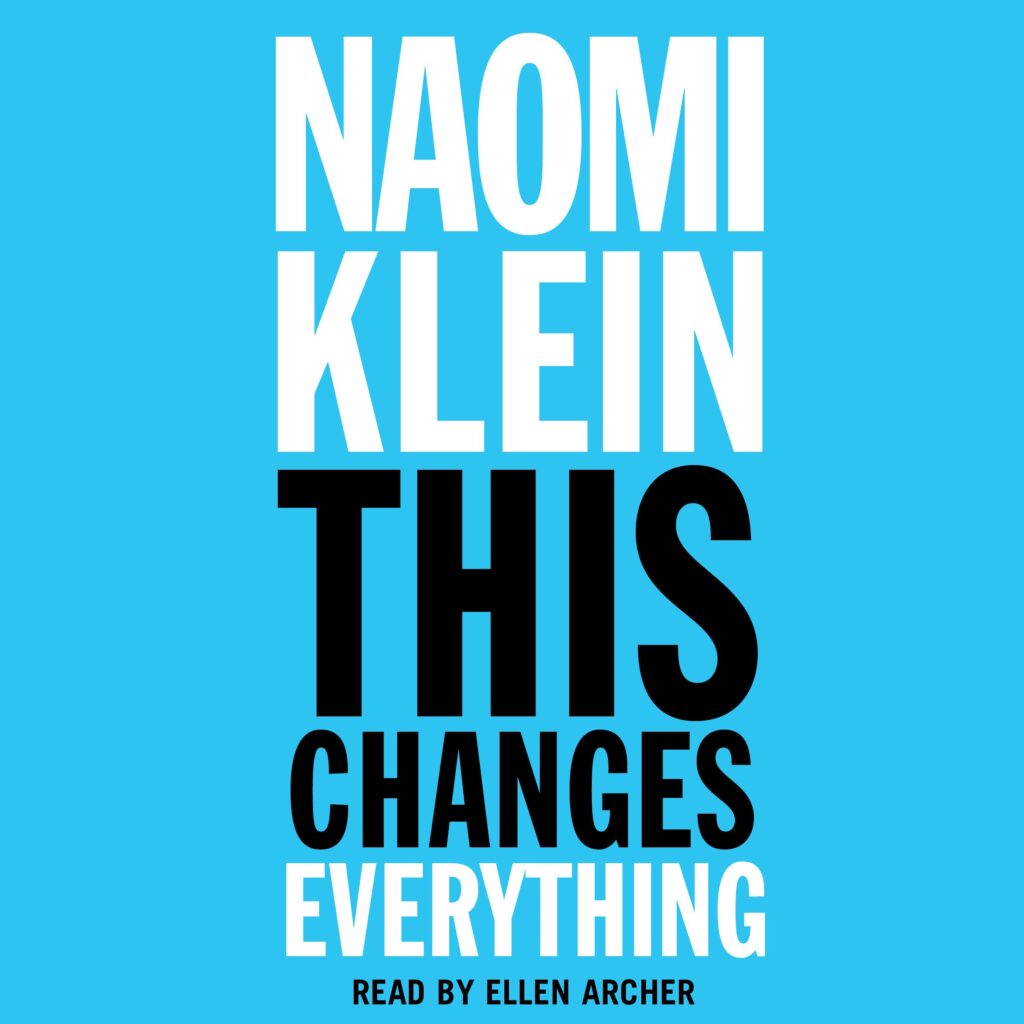
We think this audiobook is a must-listen for anyone wanting to grasp the deep links between our economic system and the climate crisis.
Pros:
- In-depth analysis of complex issues
- Well-researched with real-world examples
- Thought-provoking ideas for change
Cons:
- Very long at over 20 hours
- Can be heavy and intense at times
- Some may find the critique of capitalism controversial
We just finished listening to “This Changes Everything” by Naomi Klein, and it left us with a lot to think about. Klein digs into how our current economic system clashes with climate action. She backs up her points with tons of facts and stories from around the world.
The book doesn’t pull any punches. It shows how big companies and governments often put profits before the planet. But it’s not all doom and gloom. Klein also talks about people and groups fighting for change. We found these parts really inspiring.
At times, the book can feel overwhelming. There’s so much information to take in. But Klein’s clear writing style helps make tricky ideas easier to grasp. We think it’s worth the time investment to really understand these big issues. Whether you agree with all of Klein’s views or not, this book will make you see things in a new light.
15. Regeneration: Climate Action Blueprint
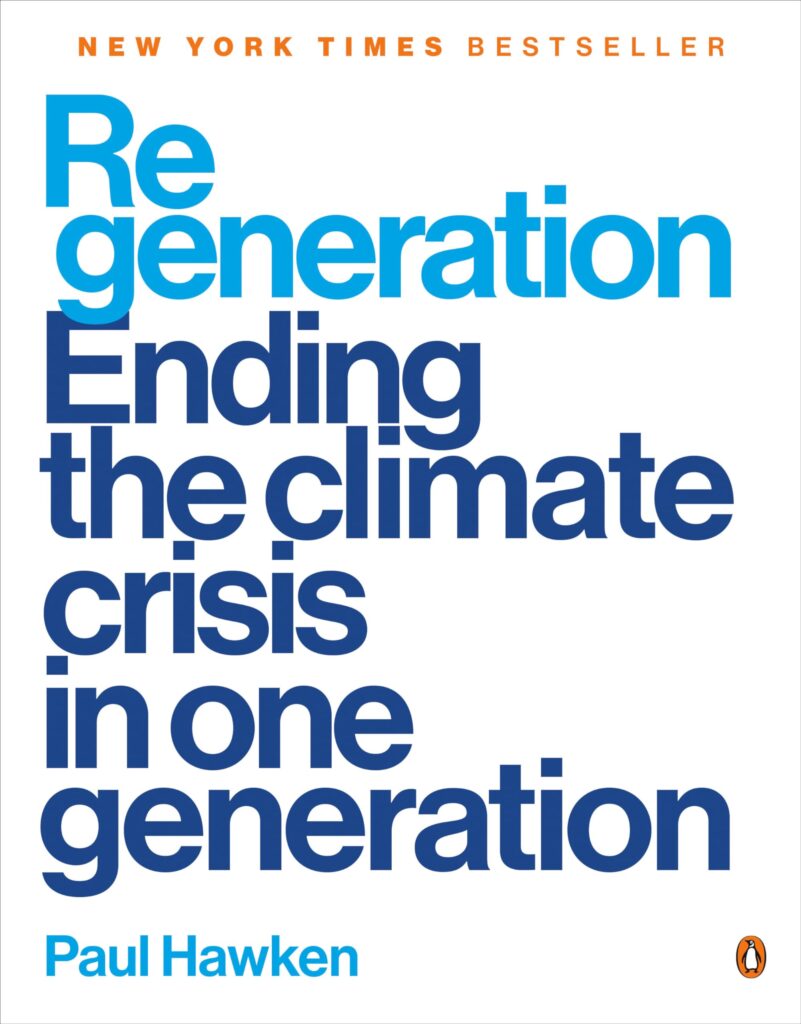
We recommend this comprehensive guide for anyone seeking practical solutions to address climate change.
Pros:
- Offers actionable strategies
- Beautiful visuals and layout
- Accessible writing style
Cons:
- Some binding issues reported
- Can be emotionally heavy at times
- May overwhelm casual readers
This book gives us hope. It lays out a clear path to tackle the climate crisis in just one generation. We found the content both inspiring and informative, presenting complex ideas in an easy-to-grasp way.
The authors use real-world examples to show how regenerative practices can heal our planet. We appreciated the mix of scientific data and compelling stories. It made the book engaging and helped us connect with the material on a personal level.
We were impressed by the book’s visual appeal. The high-quality paper and stunning images make it a joy to flip through. While it’s packed with information, the layout keeps it from feeling overwhelming. This would make a great gift for anyone interested in environmental issues.
16. Climate Change Debunked
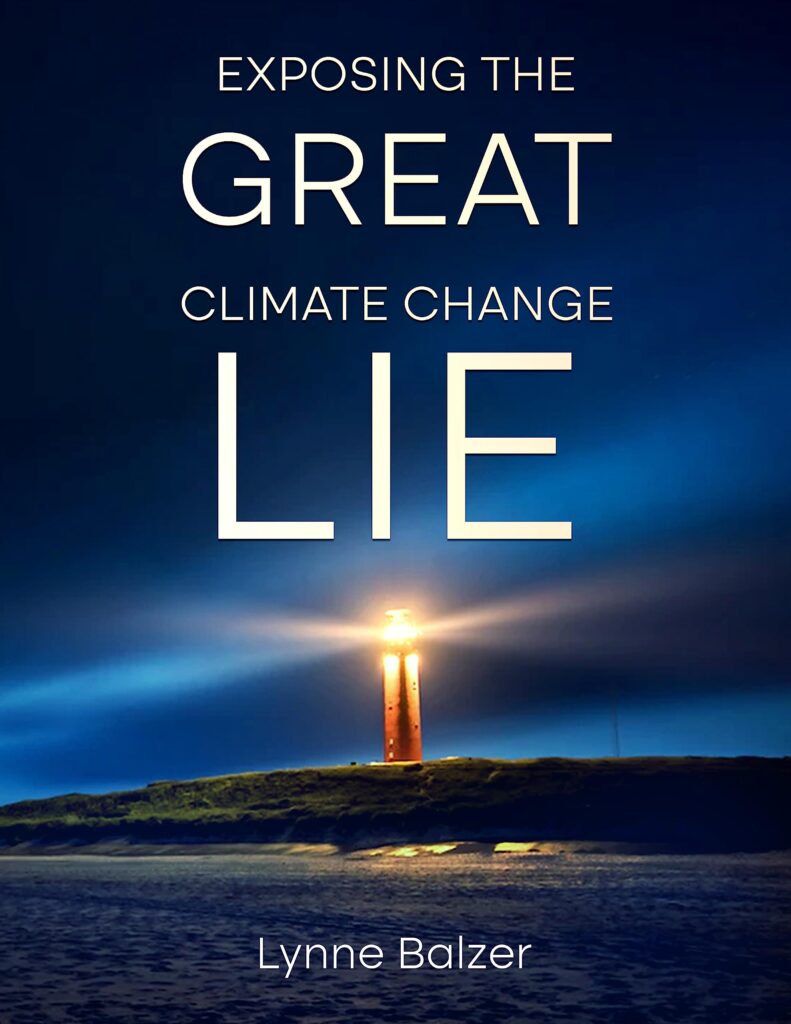
We recommend this book for those seeking a critical perspective on climate change narratives.
Pros:
- Easy-to-understand explanations
- Colorful graphs and photos
- Recent data and trustworthy sources
Cons:
- Controversial viewpoint
- May contradict mainstream science
- This could be seen as politically charged
This book offers a different take on climate change. We found the large print and colorful visuals made complex ideas easier to grasp. The author breaks down scientific concepts in a way that doesn’t need special knowledge to follow.
The text challenges popular beliefs about global warming. It claims many environmental concerns are overblown. We noticed it backs up its points with data from various sources. This approach gives readers a lot to think about.
Some parts of the book might upset people who strongly believe in climate change. It argues that some governments may be using environmental issues for political gain. We think it’s a thought-provoking read, even if you don’t agree with everything in it.
17. Solving the Climate Crisis
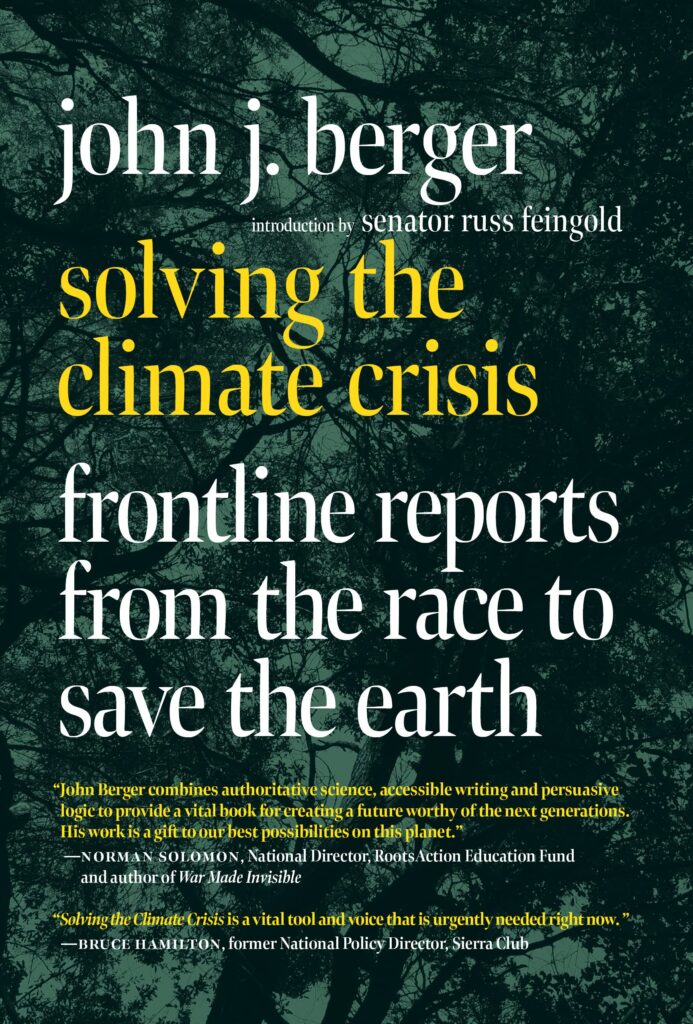
We highly recommend this book for anyone seeking practical insights into tackling climate change.
Pros:
- Up-to-date information
- Easy-to-read writing style
- Inspiring and solution-focused
Cons:
- Kindle-only format
- No X-Ray feature
- May overwhelm some readers
This book offers a fresh take on climate action. We found it packed with current data and real-world examples. The author doesn’t just list problems – he shows what’s being done right now to fix them.
The writing is clear and straightforward. We breezed through complex topics without getting lost. It’s great for readers who want to understand climate issues without drowning in jargon.
One thing we really liked was the hopeful tone. Instead of doom and gloom, it focuses on solutions. We came away feeling more informed and motivated to act. The book covers a wide range of topics, from tech innovations to policy changes.
18. Two Degrees by Alan Gratz
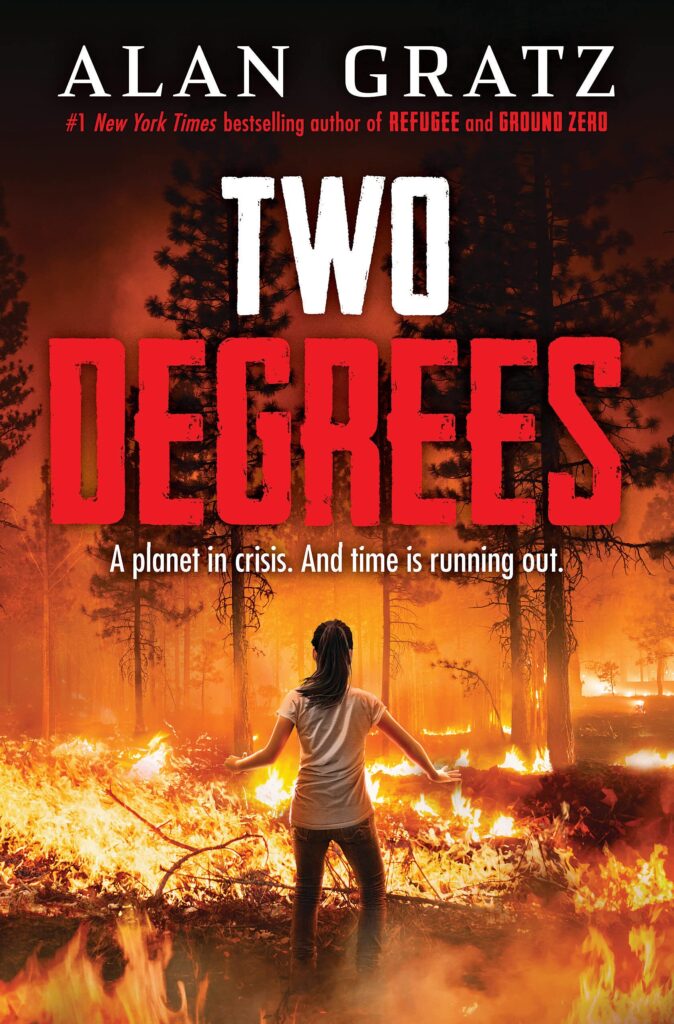
We recommend this engaging novel for young readers interested in climate change and its impacts.
Pros:
- Gripping storylines
- Educational about climate issues
- Suitable for ages 8-12
Cons:
- Some intense scenes
- Complex topic for younger kids
- May worry sensitive readers
“Two Degrees” by Alan Gratz is a riveting book that brings climate change to life through three interconnected stories. We found ourselves quickly drawn into the adventures of the young protagonists as they face wildfires, floods, and polar bear encounters. The book does a great job of explaining climate concepts in ways kids can grasp.
Gratz’s writing style kept us turning pages. He balances tense action scenes with quieter moments that let readers catch their breath. We liked how the book shows both the big picture of global warming and its effects on individual lives.
This novel works well for middle-grade readers, but parents should know it doesn’t shy away from scary situations. Some parts made us nervous, even as adults! Still, we think it’s a valuable read that will get kids thinking about an important issue. The book left us feeling more aware of climate change and eager to learn more.
19. The Fragile Earth
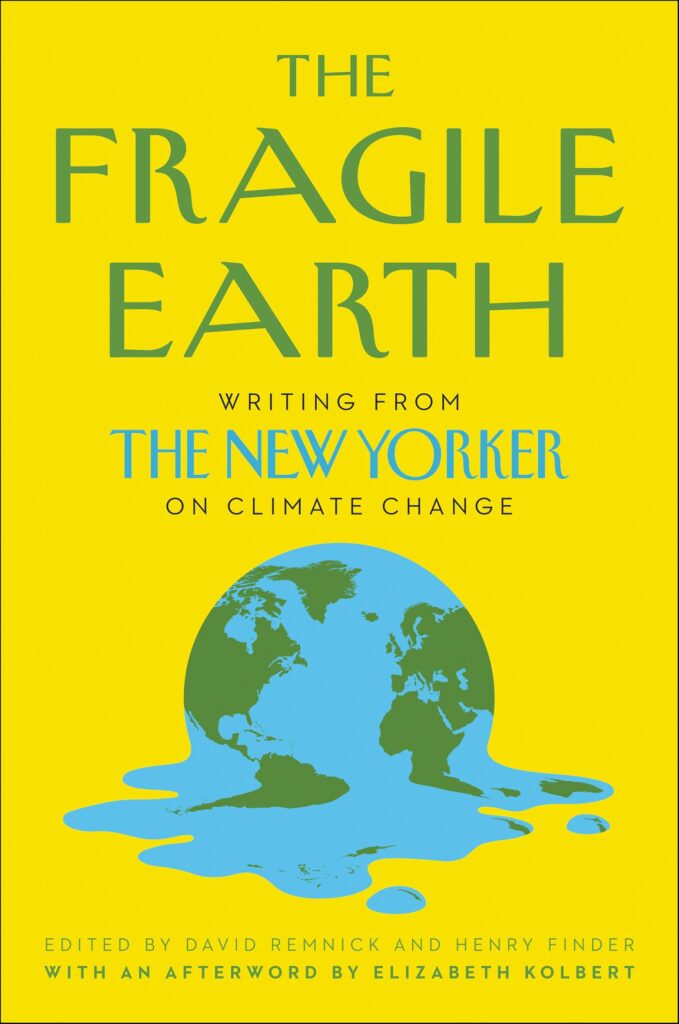
We highly recommend this collection of climate change writings from The New Yorker for anyone seeking insightful and well-researched perspectives on this critical issue.
Pros:
- A diverse range of expert contributors
- In-depth exploration of climate topics
- Engaging and thought-provoking writing
Cons:
- May be too detailed for casual readers
- Focuses mainly on American perspectives
- Some articles may feel dated
The Fragile Earth brings together some of the best climate change reporting and analysis from The New Yorker. We were impressed by the depth and breadth of topics covered. From air pollution to ocean acidification, the book tackles a wide range of climate-related issues.
The writing quality is top-notch, as expected from The New Yorker. We found the articles engaging and easy to read, despite dealing with complex subjects. The contributors include well-known authors like Jonathan Franzen, which adds credibility and variety to the perspectives presented.
We appreciated how the book balances scientific facts with human stories. It puts a face to climate change, making the issue feel more real and urgent. While some pieces are a few years old, most of the content remains very relevant today.
20. Earth Plight: Climate Reality
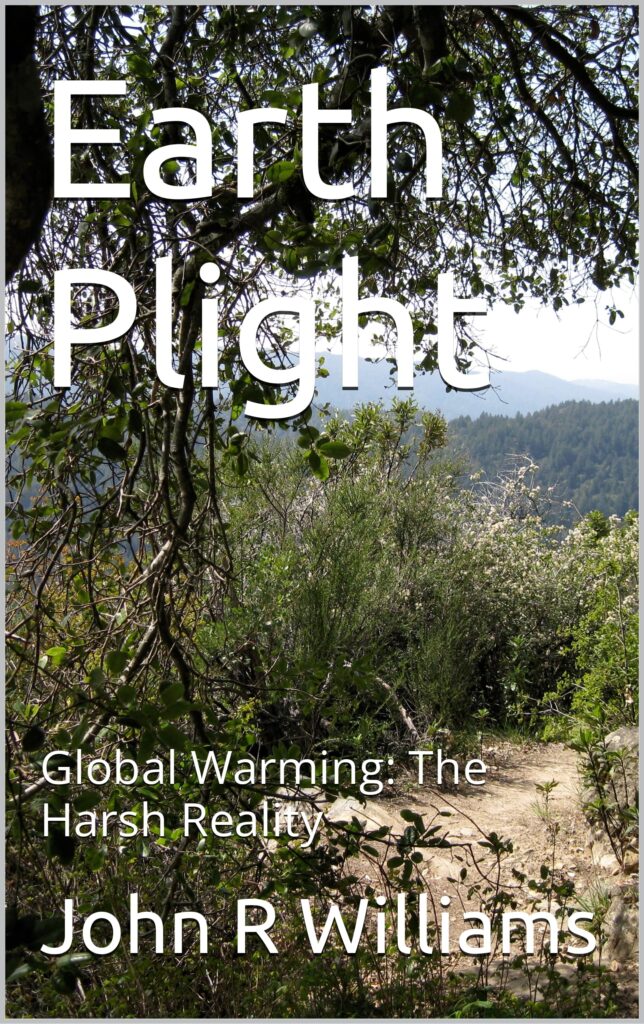
We recommend this book for anyone seeking a clear, fact-based overview of climate change and its impacts.
Pros:
- Easy-to-understand explanations
- Offers practical solutions
- Based on data from reputable sources
Cons:
- Relatively short at 144 pages
- Some may find the content alarming
- Limited coverage of opposing viewpoints
“Earth Plight: Global Warming” gives us a no-nonsense look at climate change. The author, John Williams, breaks down complex topics into bite-sized chunks. We found the mix of scientific data and real-world examples particularly helpful.
The book doesn’t shy away from hard truths. It lays out the harsh realities of global warming in plain language. But it’s not all doom and gloom. Williams also presents ways we can help tackle the problem.
We appreciate how the book draws on trusted sources like NASA and NOAA. This gives weight to its arguments and helps us feel confident in the information presented. While it’s a quick read, we came away feeling more informed about this crucial issue.
21. Concise Climate Guide
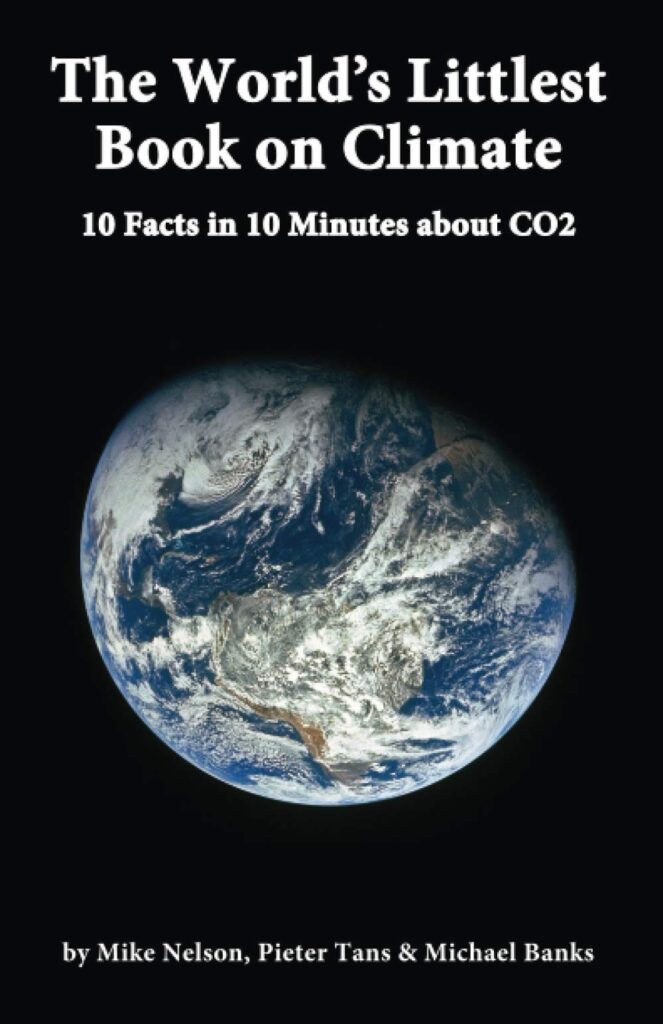
We recommend this quick read for anyone seeking a basic introduction to climate change facts.
Pros:
- Very short and easy to digest
- Focuses on key CO2 facts
- Affordable price point
Cons:
- Limited depth of information
- May be too basic for some readers
- Physical book quality could be better
This little book packs a lot of climate info into just 28 pages. We found it gives a good overview of important CO2 facts in about 10-15 minutes of reading time. The content is aimed at general readers without much science background.
We liked how it broke down complex climate science into 10 easy-to-grasp facts. The writing is clear and avoids jargon. It’s a great starting point for learning climate basics quickly.
The small size makes it super portable. We could easily read it during a short break. The low price is nice too. But the physical quality isn’t amazing – it looks self-published. Still, for a quick climate primer, we think it does the job well.
22. The New Climate War
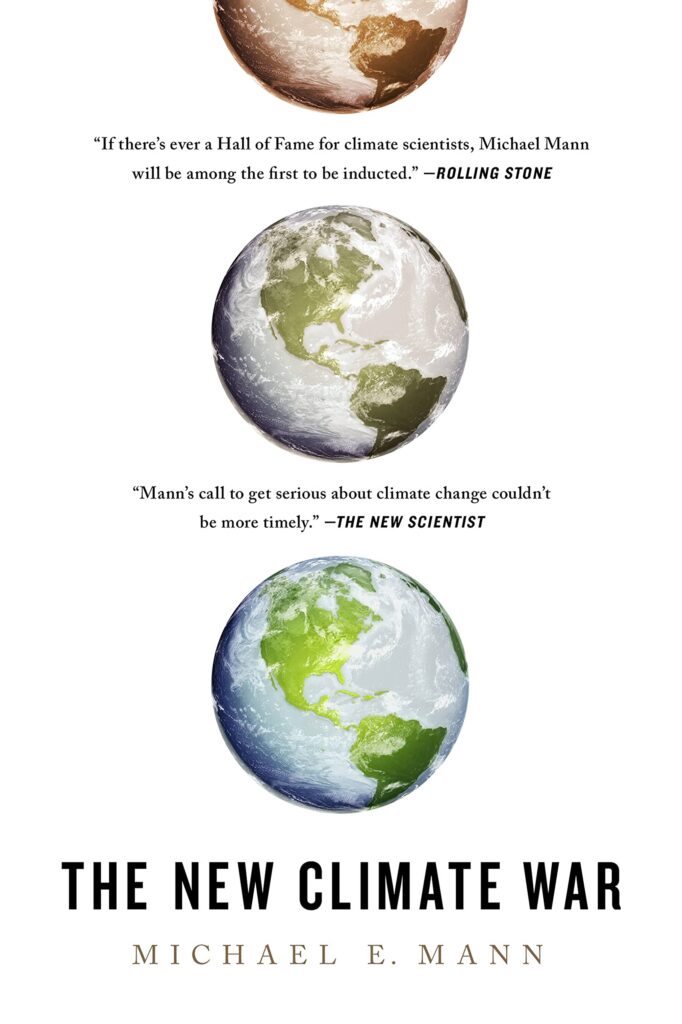
We believe this book is a must-read for anyone who wants to understand the current state of climate change action and inaction.
Pros:
- Clear explanation of climate disinformation tactics
- Offers actionable steps to combat climate change
- Written by a respected climate scientist
Cons:
- Focuses mainly on the U.S. perspective
- Some readers may find it politically biased
- It doesn’t cover all potential clean energy solutions
Michael Mann’s “The New Climate War” gives us a fresh look at the fight against global warming. We found the book eye-opening and timely. It sheds light on how fossil fuel companies try to shift blame and delay action on climate change.
The author’s expertise shines through in his clear explanations of complex topics. We appreciated how he breaks down the tactics used by climate change deniers. This helped us spot misinformation more easily. Mann also offers practical advice on how we can all pitch in to address the climate crisis.
We liked that the book doesn’t just focus on problems, but also gives hope. It shows how individuals and communities can make a difference. While some parts felt a bit U.S.-centric, the overall message applies globally. The book left us feeling more informed and ready to take action on climate change.
23. Finding the Mother Tree
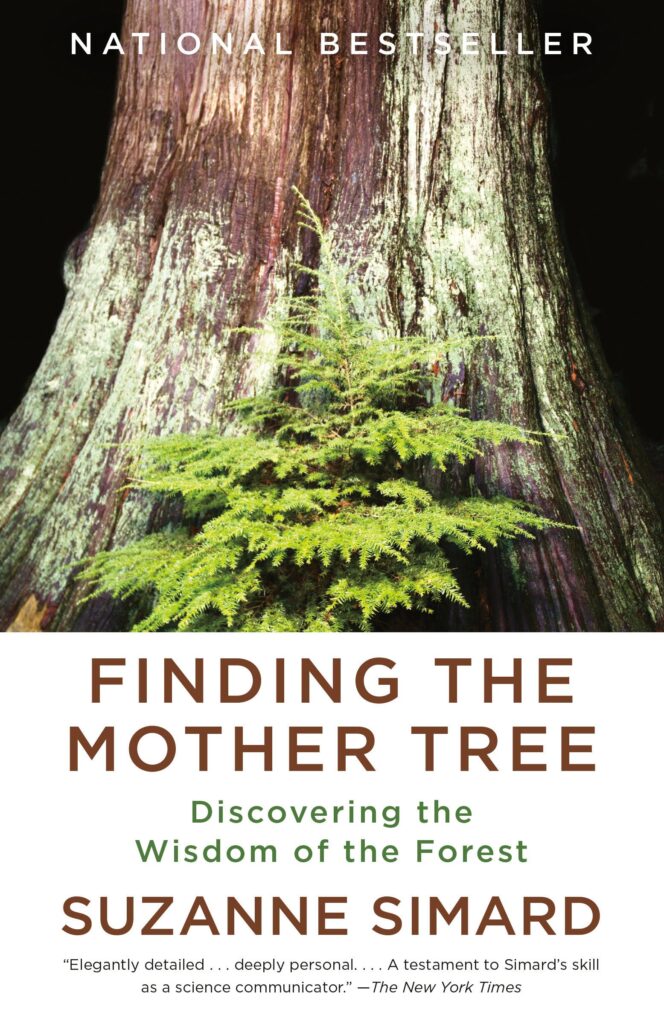
We think this book is a must-read for anyone interested in forests and the hidden connections between trees.
Pros:
- Blends personal story with scientific discovery
- Eye-opening insights about forest ecosystems
- Beautifully written and engaging
Cons:
- Scientific details may be dense for some
- Focuses mainly on North American forests
- Some readers may want more practical applications
Suzanne Simard takes us on an amazing journey through the hidden world of forests in “Finding the Mother Tree”. We were amazed by how she weaves her personal experiences as a forester with groundbreaking scientific research. The book shows how trees communicate and share resources through underground fungal networks.
We loved learning about “mother trees” – the oldest and largest trees that act as hubs in the forest network. Simard’s writing brings the forest to life in a way we’ve never seen before. Her descriptions of experiments and discoveries kept us hooked from start to finish.
While some parts get pretty technical, we think it’s worth pushing through. The mix of science and personal stories makes complex ideas easier to grasp. This book changed how we see forests. We now look at trees as part of a larger, interconnected system rather than just individual plants.
24. Climate Change Guide
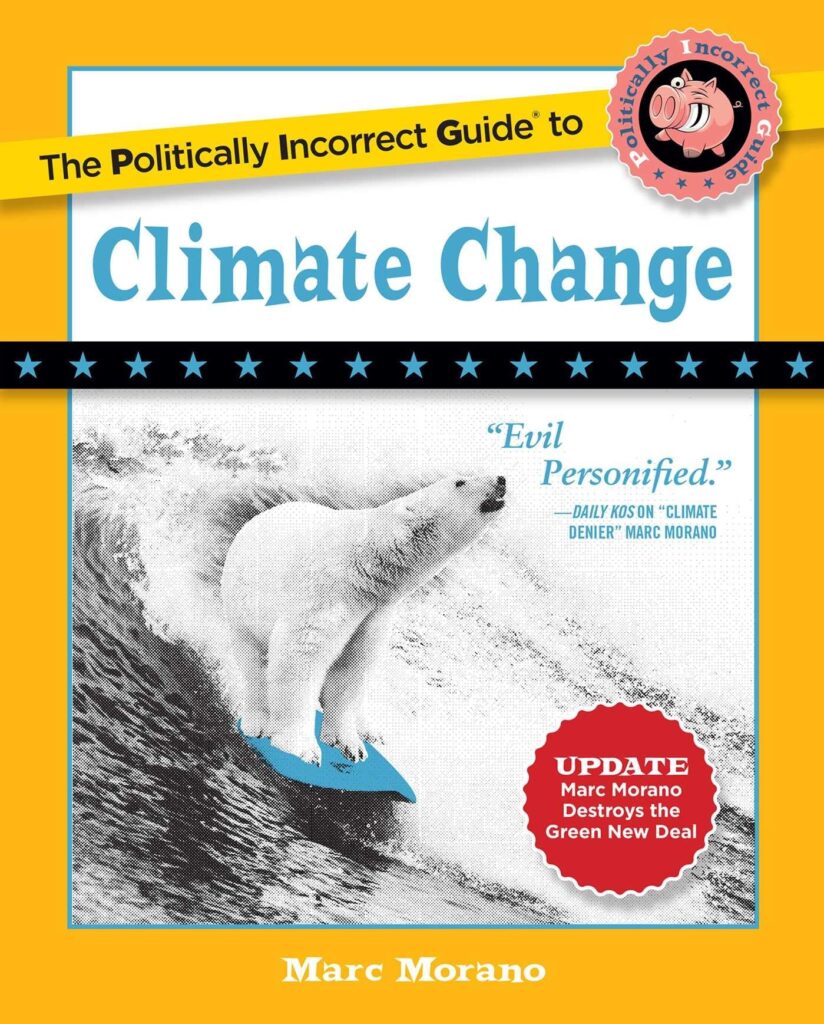
We recommend this book for readers seeking a contrarian perspective on climate change debates.
Pros:
- Challenges mainstream climate change narratives
- Cites many scientific sources
- Easy to understand for non-experts
Cons:
- It may be seen as controversial
- Takes a strong political stance
- Some may disagree with its conclusions
This book offers a different take on climate change. We found it presents arguments that go against what we often hear in the news. The author uses lots of scientific references to back up his points.
The writing style is clear and aimed at regular folks. We didn’t need a science degree to follow along. It covers topics like global warming, extreme weather, and climate policies.
We appreciate that it brings up ideas we don’t always see in other climate books. While some readers might not agree with everything, it got us thinking. This guide could be good for anyone who wants to look at climate change from all angles.
25. Nomad Century
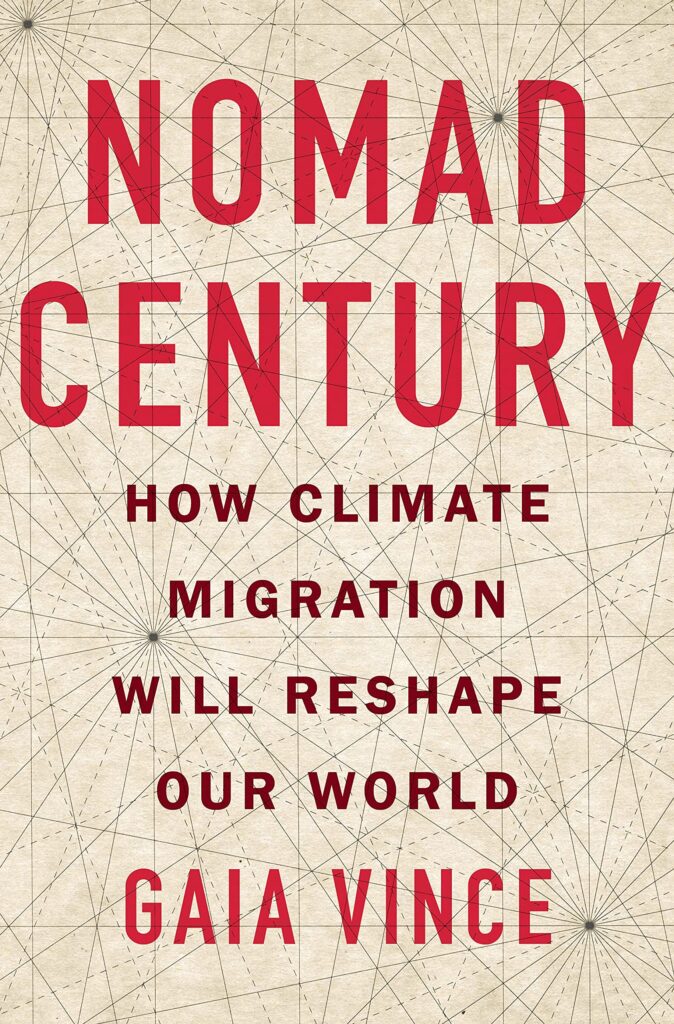
We recommend this book for anyone seeking a well-researched, thought-provoking look at climate change and its impact on human migration.
Pros:
- Clear, engaging writing style
- Backed by scientific research
- Offers strategies for adaptation
Cons:
- Some may find the predictions unsettling
- Focuses heavily on migration as a solution
- Limited discussion of alternative scenarios
“Nomad Century” by Gaia Vince is an eye-opening read about the future of human migration due to climate change. We found the book’s insights both alarming and fascinating. Vince paints a vivid picture of a world where millions of people must relocate to survive.
The author’s writing is easy to follow, even when tackling complex topics. We appreciated how she blends scientific data with real-world examples. This mix helps bring the stark realities of climate change to life.
Vince doesn’t just point out problems – she also suggests solutions. Her ideas for managing mass migration are interesting, if sometimes controversial. While the book can feel scary at times, it also offers hope. It shows how good planning might help us adapt to a changing world.
We think this book is a must-read for anyone interested in climate change’s effects on society. It’s not always an easy read, but it’s an important one. “Nomad Century” will likely change how you think about the future of our planet and our species.
26. Climate Resilience
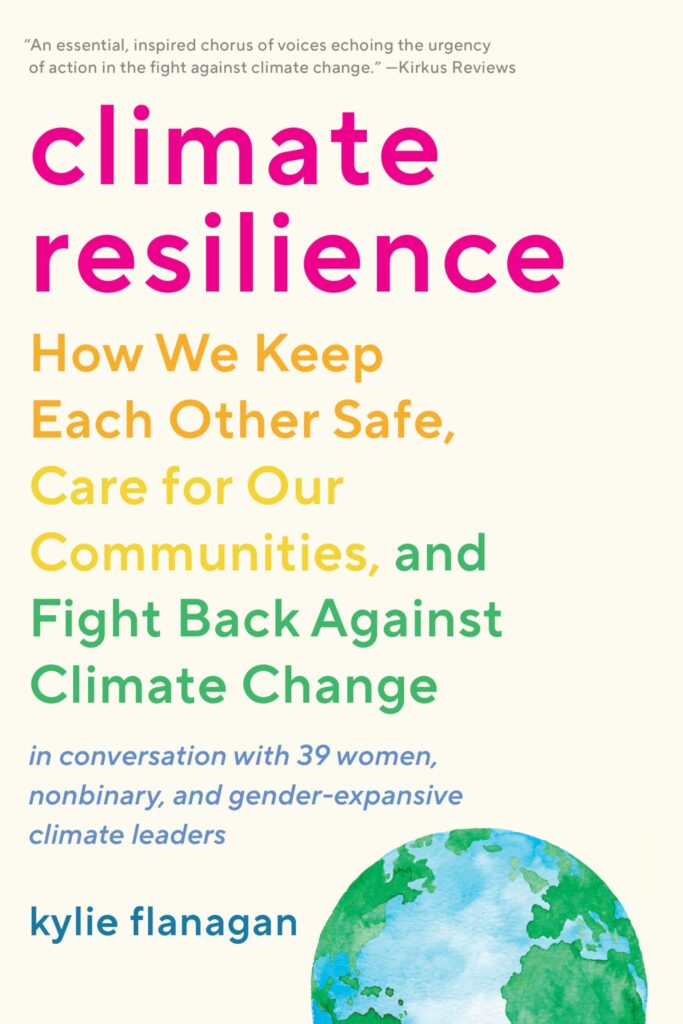
We believe this book is a must-read for anyone looking to understand and take action on climate change.
Pros:
- Offers practical solutions
- Shares inspiring real-world stories
- Provides a hopeful perspective
Cons:
- May be too optimistic for some
- Focuses mainly on community-level actions
- Limited discussion of global policy
We found “Climate Resilience” to be a refreshing take on the climate crisis. Unlike many doom-and-gloom books, this one left us feeling energized and ready to act. The authors don’t shy away from the urgency of the situation, but they balance it with stories of people making a real difference.
The book shares examples from 39 leaders who are tackling climate change head-on. We liked how it showed what’s possible at the community level. It’s not just about big government policies – there’s a lot we can do in our own neighborhoods.
One thing we really appreciated was the focus on social justice. The book makes it clear that climate change and inequality are linked. It gives a voice to communities that are often left out of these discussions. We came away with a better understanding of how climate solutions can also address other social issues.
27. Five Times Faster: Climate Change Rethought
We recommend this book for anyone seeking fresh insights on climate policy and solutions.
Pros:
- Insider perspective on climate negotiations
- Practical suggestions for progress
- Optimistic outlook on solutions
Cons:
- Can be wordy at times
- Some complex concepts for general readers
- Limited focus on individual actions
Simon Sharpe’s “Five Times Faster” offers a unique look at climate change from a policy insider’s view. We found the book packed with interesting ideas about why climate talks often stall. Sharpe draws on his years working in UK climate policy to explain the hurdles we face.
The book shines when it suggests ways to speed up climate action. We liked how it mixes science, economics, and politics to paint a full picture. Sharpe argues we need new ways of thinking about these big issues. His take is surprisingly hopeful, which we found refreshing.
While the writing can get dense, we think it’s worth the effort. The book doesn’t shy away from tricky topics. It might be a tough read for some, but it left us feeling more informed about climate policy. For those wanting to dig deep into how we can tackle climate change faster, this book is a solid pick.
28. Climate Change Hoax Argument
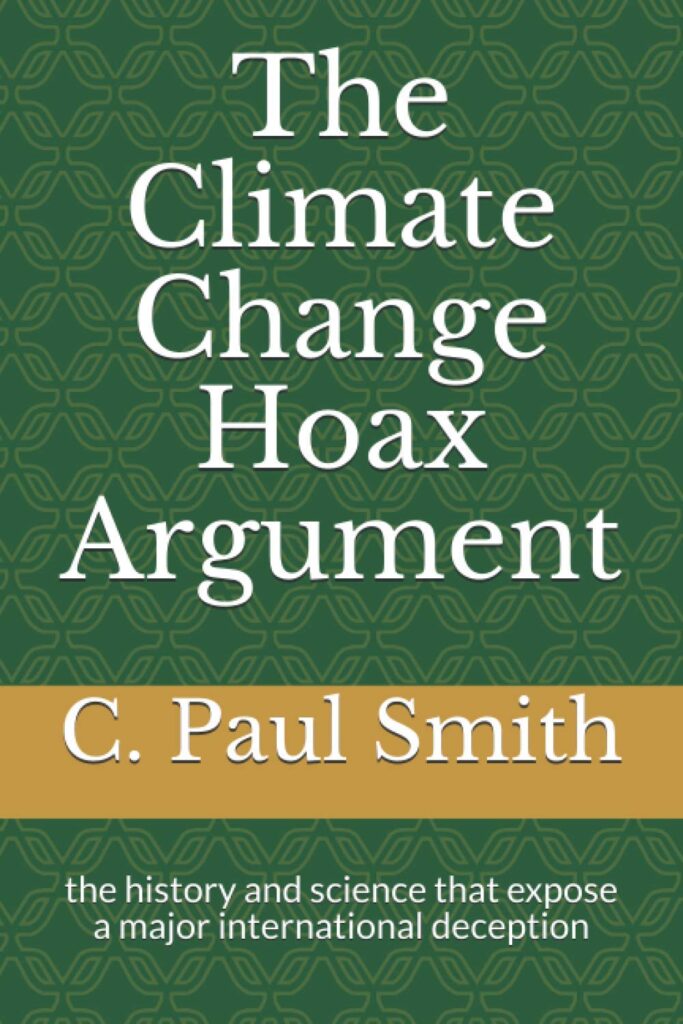
We found this book offers a thought-provoking perspective on climate change debates, but readers should approach it with a critical mindset.
Pros:
- Easy-to-understand language
- Includes many scientific references
- Challenges Mainstream Climate Views
Cons:
- May present a one-sided argument
- Could be seen as controversial
- Lacks peer-reviewed sources
This book dives into the climate change debate from a skeptical angle. We noticed it’s written in a way that’s easy to grasp, even for those without a science background. The author uses humor to keep readers engaged, which we found refreshing for such a heavy topic.
We were impressed by the amount of information packed into just 150 pages. The book covers a wide range of arguments against human-caused climate change. It cites many sources to back up its claims, though we noted that not all of these are from peer-reviewed scientific journals.
While reading, we felt the book raised some interesting points that aren’t often discussed in mainstream media. It made us think about climate science in new ways. But we also realized it’s important to read this alongside other climate change books to get a balanced view. This isn’t a light read, but it could be a good pick for those wanting to explore different views on climate change.
29. The Sixth Extinction
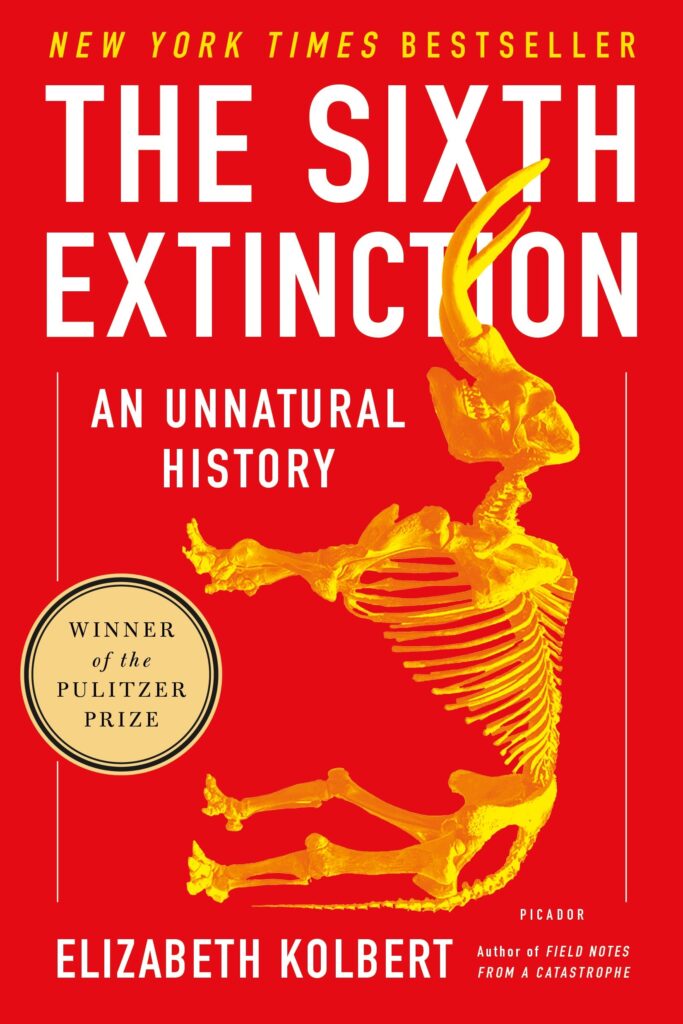
We think this eye-opening book is a must-read for anyone wanting to grasp the full scope of human impact on Earth’s ecosystems.
Pros:
- The engaging and accessible writing style
- Well-researched with compelling examples
- Pulitzer Prize-winning work
Cons:
- It can be emotionally challenging to read
- Some scientific concepts may be complex
- Focuses more on problems than solutions
Elizabeth Kolbert’s “The Sixth Extinction” is a gripping exploration of how human activity is reshaping our planet. We found the book’s blend of scientific research and firsthand reporting made for a compelling read. Kolbert takes us on a journey through time and across the globe, showing how our actions are causing a mass extinction event.
The book’s strength lies in its vivid examples. We were particularly struck by Kolbert’s descriptions of disappearing frogs in Panama and dying coral reefs. These stories bring home the reality of extinction in a way that statistics alone can’t match.
While the subject matter can be heavy, Kolbert’s writing keeps things engaging. We appreciated her clear explanations of complex topics like ocean acidification. The book doesn’t shy away from hard truths, but it also highlights the dedication of scientists working to understand and mitigate these changes.
30. Climate Capitalism
We recommend this book for anyone seeking a hopeful yet realistic view of climate solutions driven by business and innovation.
Pros:
- Inspiring real-world examples
- Well-researched and documented
- A balanced perspective on complex issues
Cons:
- May feel too optimistic for some
- Focuses mainly on large companies
- Could go into more depth on some topics
Climate Capitalism offers an engaging look at how businesses are tackling climate change. We found the book packed with fascinating stories of companies and innovators working to cut emissions. It’s not just doom and gloom – there’s a sense of hope and possibility on every page.
The writing style is clear and accessible. We breezed through it quickly, thanks to Rathi’s knack for explaining complex topics simply. He avoids getting bogged down in jargon or overly technical details.
While some readers might find the tone too upbeat, we think it strikes a good balance. Rathi doesn’t shy away from the huge challenges ahead. However, he makes a strong case that smart capitalism can be a powerful force for climate action.
We especially liked the global scope. The book looks beyond the usual suspects to highlight climate solutions from around the world. It’s eye-opening to see how different countries and cultures are approaching the problem.
For readers wanting a deep dive into climate policy or activism, this might not be the best pick. The focus is squarely on business and technology. But for a fresh take on climate solutions, we think Climate Capitalism delivers.
Buying Guide
When choosing books on climate change, we suggest looking at a few key factors:
Publication Date Recent books (within the last 2-3 years) tend to have the most up-to-date information on this rapidly evolving topic.
Author Credentials Look for authors who are climate scientists, environmental experts, or respected science journalists. Their expertise lends credibility.
Scope Some books focus on science, while others explore solutions or policy. Pick one that aligns with what you want to learn.
Reading Level Books range from beginner to advanced. Choose one that matches your current knowledge.
Reviews Check ratings and reviews from trusted sources to gauge quality and readability.
Here’s a quick checklist of features to consider:
- Clear explanations of complex topics
- Plenty of data and evidence to support claims
- Discussion of both problems and potential solutions
- Engaging writing style
- Helpful visuals like charts or graphs
We recommend browsing a few pages before buying to make sure the writing style clicks with you. Libraries are great for test-driving books before purchase.
Remember, the best book is one you’ll actually read and learn from. Pick something that grabs your interest and fits your reading preferences.





